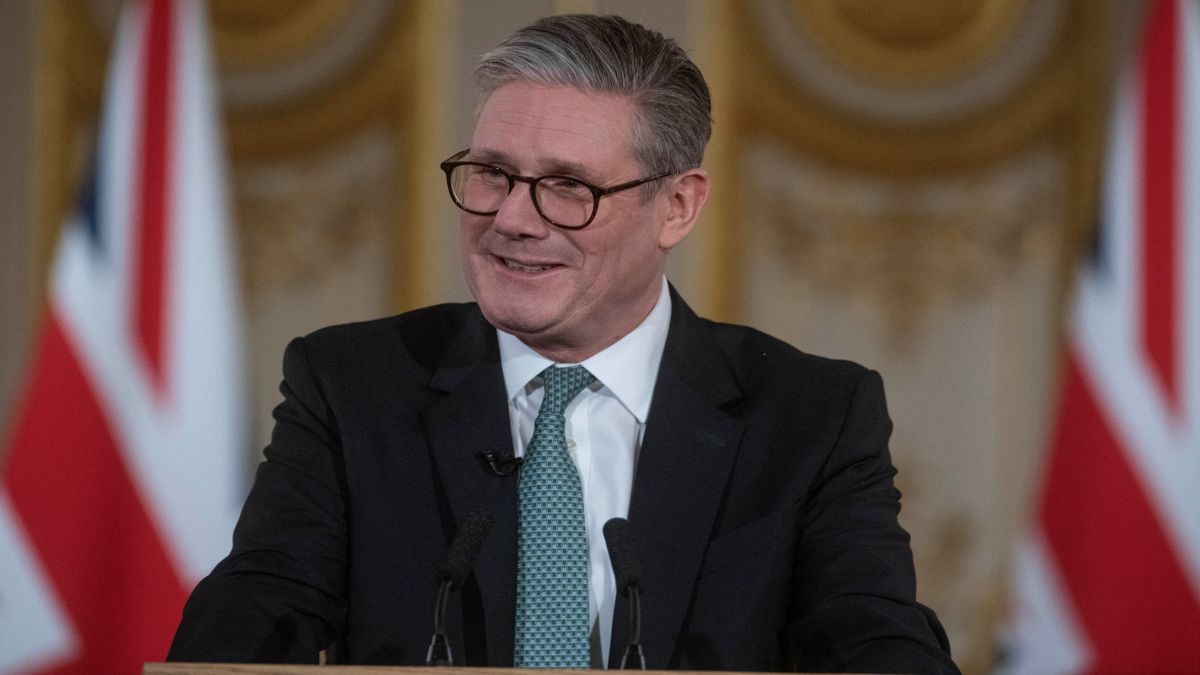UK Prime Minister Sir Keir Starmer has said that Britain is in talks with several countries to establish overseas “return hubs” for failed asylum seekers.
According to a BBC report, speaking during his first official visit to Albania, Starmer said the government had begun discussions about sending asylum seekers abroad for processing after their claims had been rejected in the UK.
He declined to specify which countries are involved or where the rejected asylum seekers might be sent.
However, Albanian authorities confirmed they are not part of the ongoing discussions.
Starmer’s visit to Albania comes as he unveils separate plans aimed at tackling organised crime and curbing illegal immigration.
The number of people crossing the Channel has passed 12,000 since January, putting 2025 on course to be a record year.
“We are in talks with a number of countries about return hubs,” BBC quoted Sir Keir as saying at a news conference in Albania, alongside the country’s Prime Minister Edi Rama.
“I see them as a really important innovation,” he added.
BBC had previously reported that the UK is exploring “return hub” deals with Western Balkan nations, including Serbia and Bosnia — but not Albania.
The plan targets only failed asylum seekers with no right to appeal, unlike the scrapped Rwanda scheme, which involved offshore processing.
Italy’s similar deal with Albania is currently stalled by legal challenges.
Albanian PM Rama called it a “one-off” due to Italy’s special ties and confirmed other countries have approached Albania with similar requests.
“We said no because we are loyal to our marriage with Italy,” BBC quoted Rama as saying.
Keir said the proposed return hubs align with the UK’s efforts with Albania to curb Channel crossings.
Conservative shadow home secretary Chris Philp said Rama’s apparent rejection of talks about return hubs had turned the PM’s trip into “an embarrassment”.
“Starmer jetted off and now the Albanian prime minister has made clear that there will be no UK return hubs in Albania. So, what was the point of this entire visit?” asked Philp.
The government says Albanian small boat arrivals have dropped by 95% over the past three years, with returns doubling in the last two.
Immigration has dominated political focus this week.
On Monday, ministers unveiled a White Paper outlining plans to reduce legal migration. Starmer insisted the proposals would bring the system “back into control” and denied they were a reaction to Reform UK’s gains in local elections.
Nigel Farage’s Reform UK has vowed to freeze non-essential immigration and return small boats to France.
In Albania, Starmer announced expanded cooperation on tackling illegal migration and organised crime.
“The last government lost control of the borders. I am determined that we will retake control of the borders," BBC quoted him as saying.
“That means that we have got to have a concerted effort to smash the gangs that are running this vile trade,” he added.
He credited stronger ties with Albania for helping drive down migrant numbers and said he wanted to “see more of that.”
The prime minister also confirmed the expansion of the Joint Migration Task Force—used to share intelligence and disrupt people-smuggling networks in the Western Balkans—to include North Macedonia.
The government added that the new measures would target the “revolving door effect,” where migrants evade enforcement, return home, and attempt to leave again.
The plans also includes a new programme to help young Albanians reintegrate into society and find employment; funding a new forensic evidence programme to share and track DNA of criminals in Albania to solve crimes in the UK; a further £1m investment to upgrade Albania’s forensics, biometrics and digital capability and greater intelligence sharing to allow local law, using UK-funded drones, to “snare gangsters” transporting migrants through the Western Balkans corridor.
With inputs from agencies


)
)
)
)
)
)
)
)
)



